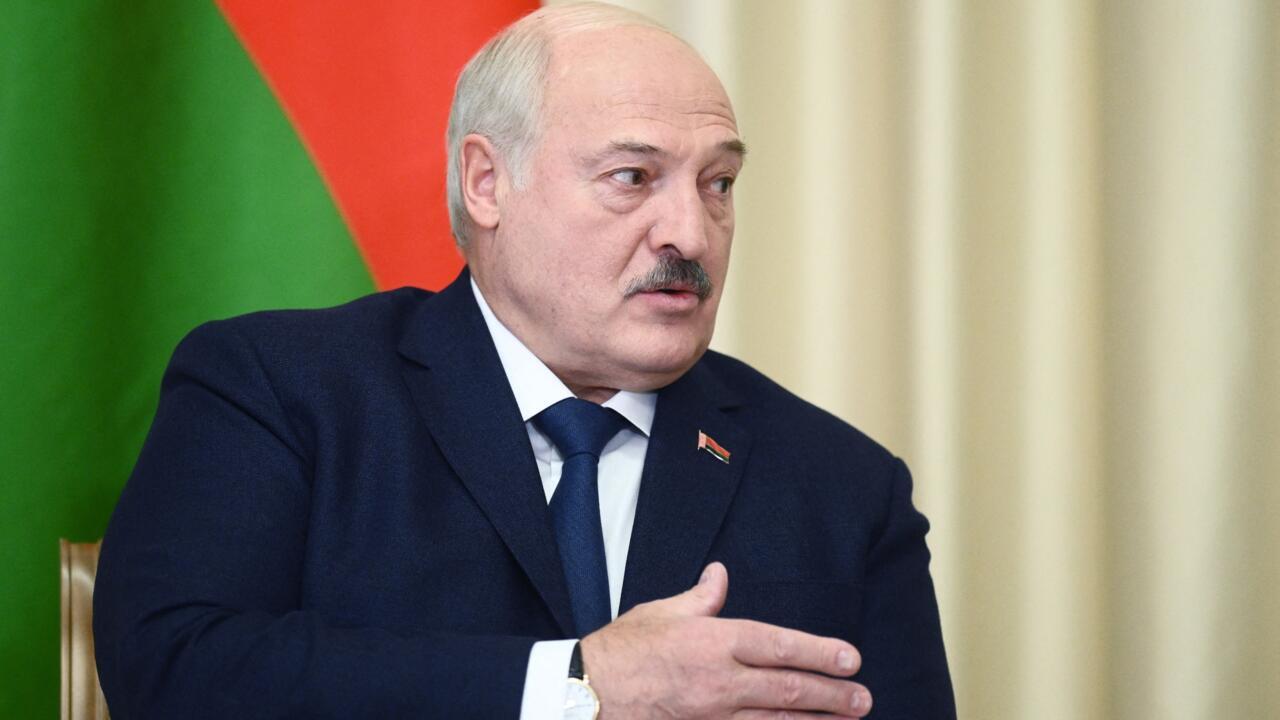Belarusian President Alexander Lukashenko announced this Sunday, February 25, that he will run for president again in the 2025 elections. In power since 1994, he is now seeking a new mandate, amid criticism for the lack of guarantees in the last elections 2020. The international community did not recognize his victory and demands free votes in Belarus.
First modification:
4 min
“Tell (the opposition in exile) that I will compete,” With that phrase, the president of Belarus, Alexander Lukashenko, announced this Sunday, February 25, that he will run as a candidate in the 2025 presidential elections.
After several decades in power (since 1994), the leader intends to win a new mandate, despite the strong protests that have been registered against him.
He announced his candidacy in the middle of the parliamentary and local elections, which are being held this Sunday, February 25, and added:
The more complex the situation, the more actively they will disrupt our society. No person, no responsible president, abandons the people who fight for him
The Belarusian leader is one of the closest allies of Russian President Vladimir Putin, and he announced that he will continue to strengthen his relationship with the Kremlin. Furthermore, he made it clear that he will not allow the change of power in the country. “We know how to draw conclusions from our mistakes. Therefore, don't expect anything,” he said.
Opposition leaders, most of them in exile, have rejected the president's announcement and called for a boycott of the parliamentary elections. “Just crown yourself. Anyway, no one will be fooled,” posted Sviatlana Tsikhanouskaya, former presidential candidate.
'Controlled elections'
This Sunday the polls opened in Belarus to elect members of Parliament and municipal authorities. The opposition accused the Government of controlling the elections, by not having any opposition candidate on the ballot.
The four movements registered and participating with their candidates have supported all of Lukashenko's policies in recent years. While opposition political organizations have not been able to register to participate.
This opens the way to the disappearance of the opposition in the Lukashenko regime, which has provoked calls for attention from the international community for the lack of guarantees for free and democratic elections.
Although Parliament has little influence on the direction of the country, after the president's consolidation of power, Lukashenko is guaranteed the full support of future legislators.
The elections only have national observers. The Organization for Security and Cooperation in Europe (OSCE), which carries out electoral oversight, condemned this position of the Government in January.
“Farce. Fraud. Impostor. Scam. Circus. Imitation. Ritual. Military operation. There are many words to describe what is happening today in #Belarus. But don't call it an election,” Tsikhanouskaya said.
The #Belarus regime's so-called elections today fail to meet any democratic standards, resembling more a military operation against its own citizens, the constitution & common sense. I urge Belarusians & the international community to categorically reject this sham. pic.twitter.com/oPDqDvvQpQ
— Sviatlana Tsikhanouskaya (@Tsihanouskaya) February 25, 2024
The Viasna Human Rights Center, in Belarus, has denounced several irregularities throughout the day that would demonstrate the pressure from the Government for citizens to go to the polls.
«Не прагаласуеш — выпішам з лякарні!»
In the name of the administration of balnits, where the closures of the boxes are divided galasavanned Тым, хто дмаўляецца — прыгразілі выпіскай са стацыянара і іншымі праблем амі.https://t.co/7gx1gpGmB1 pic.twitter.com/PXDkwRBaB5
— Viasna (@viasna96) February 25, 2024
In addition, there have been several cases of political persecution of people for their position of supporting Ukraine. This is because Belarus supports Russia in its invasion. Even at the beginning of the war it allowed Russian troops to enter its territory to carry out attacks against kyiv.
National discontent
This Sunday's votes are the first to be held, after the massive protest that sparked Lukashenko's re-election in 2020. A national discontent that ended with dozens of arrests and strong repression that was internationally condemned.
Three women competed in 2020 against Lukashenko's candidacy, led by Professor Sviatlana Tsikhanouskaya. The election was widely seen as manipulated by the opposition, following the victory of the current president. For several weeks, dozens of small demonstrations were held throughout Minsk, the Belarusian capital, as a tactic to avoid a large concentration so that the security forces could not contain them.
More than 300 people were arrested and the protests were responded to by a strong police contingent that used stun grenades, tear gas and batons to disperse the protesters.
The European Union did not recognize Lukashenko as head of state of Belarus and neither did the United States, and imposed sanctions such as restricting visas for more than 100 Belarusian government officials; also to entities such as the state airline Belavia and the Minsk aircraft plant.
Something that seems to be of no concern to Lukashenko, who said this Sunday that his country does not need validation from the West for the elections to take place.
For its part, the opposition faces a difficult path due to the persecution of all voices critical of the Government. There are more than 1,500 political prisoners, according to the European Union, who have been imprisoned solely for differing with the Lukashenko regime. Not only politicians are at risk, religious leaders (Catholic, Orthodox and Protestant) have been persecuted, imprisoned or forced into exile by the Belarusian government.
With Reuters, AFP, AP.
#Belarus #Lukashenko #Europe39s #dictator #announces #presidential #candidacy

Leave a Reply